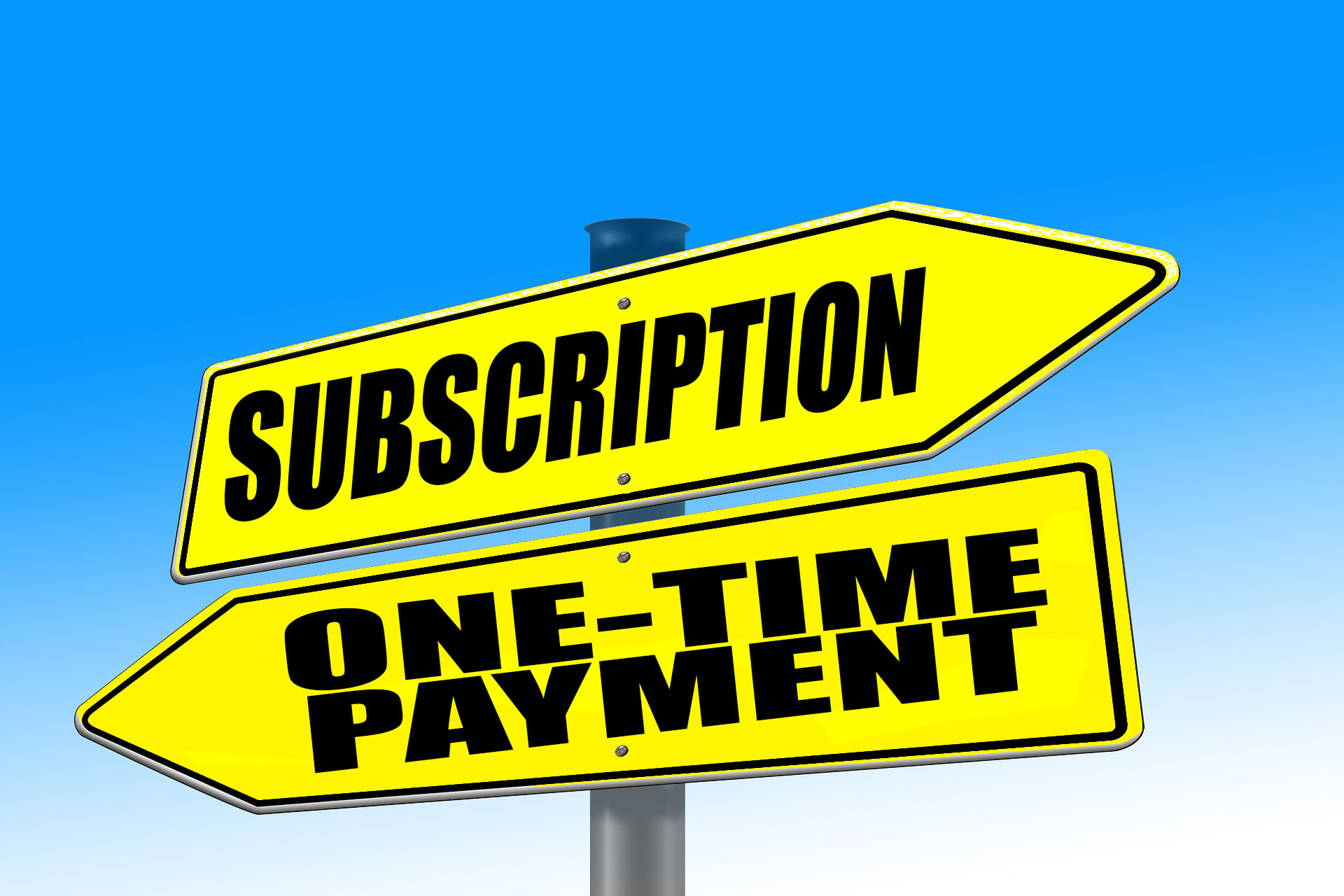
Subscriptions Are the New Black
In this week's blog, we take a look at subscriptions. Although it has always been around, many companies are now looking towards subscription models and tiered pricing in order to preserve or improve their market share. Let's take a look at some reasons why that is.
It's so very easy to forget about the benefits offering subscriptions to your customers when looking at rolling out new or more innovative products, but as the shift in the United States has begun to skew towards longevity and multiuse, more and more companies are looking towards subscription-based services when creating goals for their company. With the rise of more and more complicated technologies and products, never has there been an opportunity to serve your customer base (not to mention yourselves and investors) by giving them exactly what they are asking for at a price you can both live with.
Value to Clients and Customers
Not very long ago, one of my favorite products went from version-based purchasing to a subscription model. To say that I was unimpressed really would have been an understatement, but as the months have ticked by I've noticed a few things that have completely turned me (as a consumer) on the notion of a subscription service. Firstly, there's the stupid simple convenience of putting ten bucks a month on autopilot to ensure that I always have the latest and greatest version of the software that I am using. As a certifiable type A personality, I cannot explain the peace of mind it gives me to know that the services or product I need to my work are prepped and ready for me--always.
Another value I get from my subscriptions (it always starts with just one) is that it allows me greater flexibility with my personal budget. I have personally found it easier to meet financial goals and save for big ticket items because what was once considered a big ticket purchase for me has now turned into a palatable monthly fee. In face, there are now services that allow you to skip months or pause your subscription if you find that you don't need certain tools while you are on vacation, for example.
Lastly, I have found that most companies offering some type of subscription service will often bundle additional products or services at little or no additional cost. This is a huge deal for a growing number of consumers that are looking to squeeze as much value from their purchases. For example, once upon a time, I was resigned to spend hundreds of dollars on Adobe products. Then they began bundling them, which helped with some of that burden, but now I instead pay a fraction of what I used to for more programs than I can shake a stick at...all for a fraction of what I used to pay.
Value for Businesses
"Because a high percentage of the revenue of a subscription-based business is recurring, it's value will be up to eight times that of a comparable business with very little recurring revenue." John Warrilow, The Value Builder System
Possibly one of the best benefits one can hope to expect from adopting a subscription model is a newfound ability to accurately predict revenue from recurring sales. A lot of what goes into keeping your business successful revolves around having accurate business data. Being able to track and forecast revenue can provide a clear idea of how to manage inventory as well as providing points of reference for reordering.
Another key benefit for businesses looking to switch to subscriptions is that it allows a company to provide laser-focused services and products to their customers. One of the easiest ways to turn off a customer is to overwhelm them with choices. Subscription services don't normally have that problem because the consumer is typically getting exactly what they want. This may mean that a company can trim underperforming services and products allowing for a simpler backend while simultaneously providing your customers with a focused, efficient transaction.
This can of course, extend to simplifying other parts of a business. For example, a benefit that some companies bank upon when considering the switch is the simplicity of it all. For the business, they only need to sell what their customers are interested in, but in addition it may also make shipping easier as you will always be able to predict and order only what is needed for your business. Additionally, since most of the work is done prior or at the onset of a subscription service, the majority of the process from interest to sale is automated, freeing up valuable resources to concentrate on other aspects of the business.
Any way that one wants to look at it, subscription-based models offer many tantalizing benefits that companies should be seriously looking at. We've only just begun to look at some of the possible benefits, but by and large, consumer are beginning to show a willingness and desire for subscription services and products and many businesses on this model report that customer engagement, conversion, and retention have grown explosively after a switch.
Subscriptions Can Work
Many suggest that subscription models are a means to quickly shuttle between clients or customers, but I think that the opposite may in fact be true. Once the initial work has been completed, the service-provider then may then be able to strengthen that relationship by offering what feels to them like a catered and personalized experience. It encourages trust as service providers must now ensure that they can consistently provide those services at any time for the client. Clients with project based relationships with their service providers are an avoidable loss; by switching a customer's focus from completion of a project to one that focuses instead on ongoing objectives, a company can more easily innovate and explore ways to provide a better product or service to their customers.